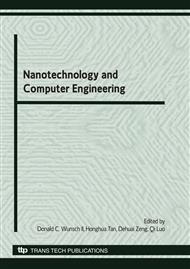p.646
p.651
p.657
p.663
p.669
p.678
p.682
p.687
p.693
Research on the Resource Allocation Model for the Satellite Constellation Communication System
Abstract:
Satellite constellation, emerging as a new paradigm for next-generation communicating, enables large-scale application of the geographically and spatially distributed heterogeneous resources for solving problems in science, engineering, and military affairs. The resource allocation in such a large-scale distributed environment is a complex task. Due to the factors that trigger the deployment of resources in satellite constellation communication system, the artificial immune theory is applied to resource allocation field to propose the task-oriented common mathematic model about resource allocation of communication system, which is aimed at the purpose of improving the effectiveness of resource allocation and is based on the 2 important indicators that are communication task’s effectiveness factors and the degree of satisfaction in the communication system. As the immune system has characteristics of self-adaptive, self-learning and self-organization, an immune allocation algorithm that fuzzy processing time is presented by applying the immune theory to resource allocation. Simulation results show that these methods are feasible and efficient in solving the problems of resource allocation for satellite constellation communication system, and the research on this object is a meaningful exploring.
Info:
Periodical:
Pages:
669-677
Citation:
Online since:
June 2010
Authors:
Price:
Сopyright:
© 2010 Trans Tech Publications Ltd. All Rights Reserved
Share:
Citation:


